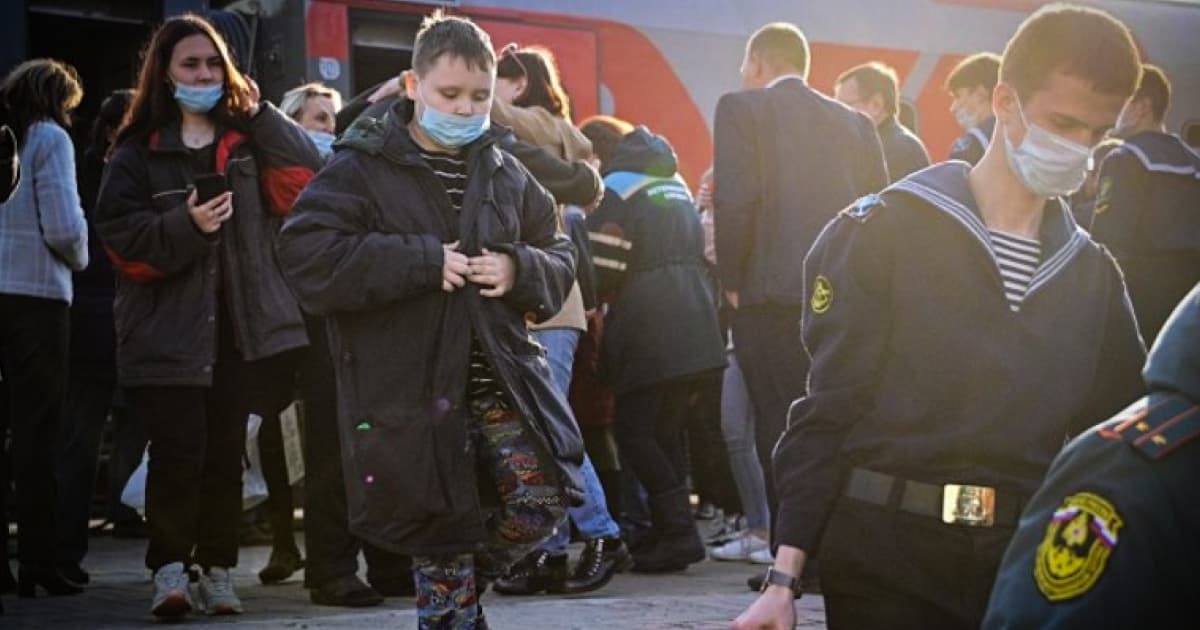Russia has taken at least 6,000 children out of Ukraine for so-called "political re-education"

Since the beginning of the full-scale invasion, the government of the Russian Federation has coordinated the illegal transfer of at least 6,000 Ukrainian children to the temporarily occupied Crimea and Russian territories. The children were placed in special camps, the main purpose of which is presumably political re-education.
These data were presented by the Conflict Observatory organization launched in 2022 by the US State Department, together with the Yale School of Public Health Humanitarian Research Lab.
According to their data, the first cases of deportation of Ukrainian children were recorded in February 2022 and the last in January 2023.
Ukrainian children are sent to at least 43 institutions in the Russian Federation and temporarily occupied Crimea.
"Most [institutions where Ukrainian children are brought — ed.] are health camps where children are allegedly taken for rest, while others are facilities used to accommodate children given up for foster care or adoption in Russia," the report notes.
The exact number of institutions may be much higher. Among the places where Ukrainian children are taken are seven summer camps in the occupied Crimea, 10 camps each near Moscow, Kazan, and Yekaterinburg. 11 more camps were discovered 800 km from the border with Ukraine, in particular in Siberia. The most remote point where children are sent is the Magadan region in the Far East of the Russian Federation.
The authors of the report found that one of the camps where children are held is a psychiatric hospital, and another is a family center.
According to investigators, 32 camps (78% of all identified) appear to be "engaged in systematic re-education efforts." There, they are subjected to Russian-centric academic, cultural, patriotic, and military education.
"Multiple camps endorsed by the Russian Federation are advertised as “integration programs,” with the apparent goal of integrating children from Ukraine into the Russian government’s vision of national culture, history, and society," the authors note.
The authors also found that children from at least two camps were adopted by Russian families. From open sources, they know that 20 children ended up in families in the Moscow region. They were enrolled in local schools.
According to the investigators, some of the children are taken to the camps with their parents' consent. In some cases, the parents were required to sign a power of attorney for an "unnamed agent." The parents have already reported the violations of the agreement, in particular, because the children were not returned to their relatives within the specified time frame.
Some other parents allegedly refused to allow their children to attend the camps, but the camp organizers ignored them and still enrolled their children in the camp.
"In many cases, the ability of parents to provide meaningful consent may be considered doubtful, as the conditions of war and implicit threat from occupying forces represent conditions of duress," the report notes.
In addition, investigators note that the operation to deport Ukrainian children is centrally coordinated by the Russian federal government and involves all levels.
"Activities of officials allegedly implicated in the operation include logistical coordination (i.e., transporting children), raising funds, collecting supplies, direct camp management, and promoting the program within Russia and occupied areas of Ukraine," the report notes.
According to their data, at least 12 people who may be involved in the deportation of children are not under US sanctions.


